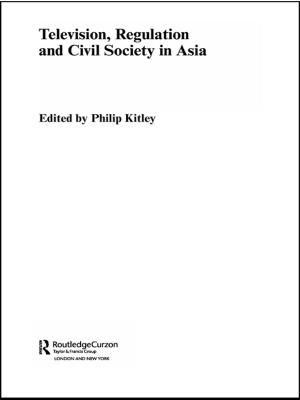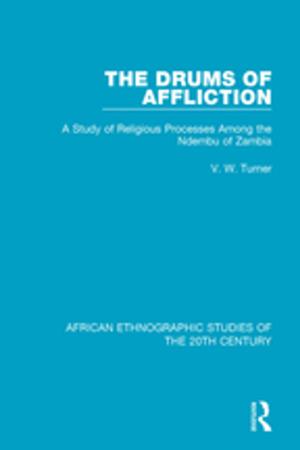| Author: | Richard Howson | ISBN: | 9781134262670 |
| Publisher: | Taylor and Francis | Publication: | January 16, 2006 |
| Imprint: | Routledge | Language: | English |
| Author: | Richard Howson |
| ISBN: | 9781134262670 |
| Publisher: | Taylor and Francis |
| Publication: | January 16, 2006 |
| Imprint: | Routledge |
| Language: | English |
In the past twenty years there has been a growing interest in the issues surrounding men and masculinity. Driven primarily by the second-wave feminist critique of the legitimacy or hegemony of masculine practice and culture, the hegemony of men in social spheres such as the family, law, and the workplace can no longer be taken for granted.
Beginning with the work of Antonio Gramsci and a focus on developing the full complexity of his theory of hegemony, Howson’s fascinating new book then moves on through theory, applications and analysis of various topical issues, discussing and extending the work of R.W. Connell, and drawing out new possibilities for social justice in gender. Over the course of several informative chapters, the book considers:
* a tripartite model of hegemony
* hegemony in the theory of practice
* application of hegemony to gender
* the study of masculinity and family law
* radical pluralism
* radical organic protest in gender.
Presenting a detailed examination of hegemonic masculinity and its interpretations, this significant new book provides an important contribution to contemporary understandings of men and masculinity.
In the past twenty years there has been a growing interest in the issues surrounding men and masculinity. Driven primarily by the second-wave feminist critique of the legitimacy or hegemony of masculine practice and culture, the hegemony of men in social spheres such as the family, law, and the workplace can no longer be taken for granted.
Beginning with the work of Antonio Gramsci and a focus on developing the full complexity of his theory of hegemony, Howson’s fascinating new book then moves on through theory, applications and analysis of various topical issues, discussing and extending the work of R.W. Connell, and drawing out new possibilities for social justice in gender. Over the course of several informative chapters, the book considers:
* a tripartite model of hegemony
* hegemony in the theory of practice
* application of hegemony to gender
* the study of masculinity and family law
* radical pluralism
* radical organic protest in gender.
Presenting a detailed examination of hegemonic masculinity and its interpretations, this significant new book provides an important contribution to contemporary understandings of men and masculinity.















